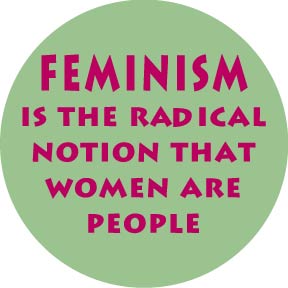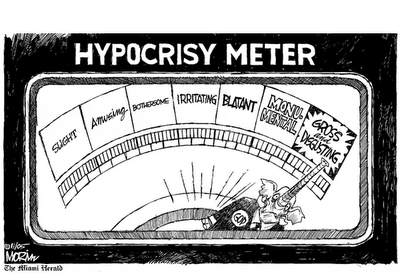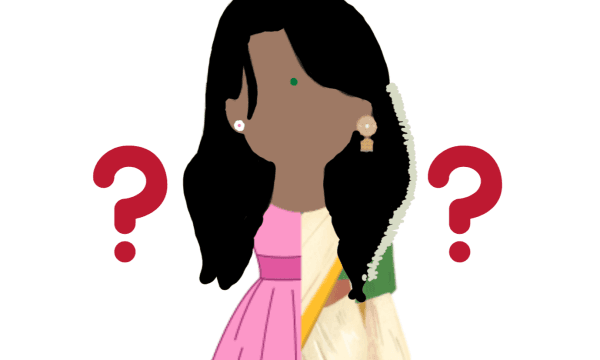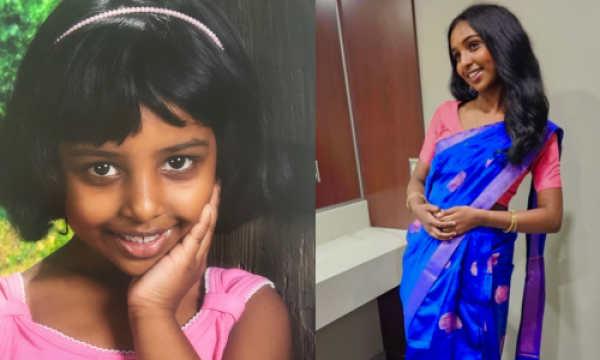
I am a feminist. Am I or should I be ashamed of it? No. Does this make me any less Tamil or less “cultured”? Hell no.
The recent article The Voices of Feminist Tamilachis is a clear indication of what is wrong with the mindset of Tamil society. I am in no way targeting the whole community - just a certain group of misguided and uninformed individuals whose patriarchal mindsets act as a barrier for the rest of us who are more well-informed. The title itself makes no sense in regards to the context of the article due to the fact that the author failed to include the voices of actual feminists apart from his own sexist viewpoints.
After reading that nicely worded piece of rubbish, I felt my blood boil, eyes twitch, fist curl and if I could possibly do it, I would have spit fire. If the author of the article was the lone voice in this set of thinking, it can be easily dismissed. However, there are many out there who share his abhorrent beliefs. For this reason, I am compelled to write in the hopes of debunking these ideals that, under the guise of culture and tradition, merely perpetuate the repression of women.
The article falsely focuses on external factors – mainly, a woman’s adherence to a certain lifestyle – as the living embodiment of feminism. The author fails to realize that being a feminist means subscribing to a way of thinking, not a pattern of behaviour. It has nothing, whatsoever, to do with what she wears, how much or how little she drinks, whether she smokes or parties, or how promiscuous she is.
It is about giving women the equal right - as men have the privilege for themselves - to make the choices that are appropriate for her. It is about the freedom to choose, allowing women to be able to assert who she is and her independence without being ostracized or discriminated against. Although the study of feminism has multiple divisions, the core purpose is the advocacy of women’s rights within the grounds of social, political and economic equality that men so freely enjoy. A woman can be a housewife with five kids, no education or worldly experience and still be a rocking feminist.

When the author of The Voices of Feminist Tamilachis states that “...I don’t really care about my girlfriend drinking, smoking or partying, I do have a problem with the mother of my child drinking, smoking and partying”, he uses freedom of speech to defend the blatant hypocrisy of his statement. Although he is entitled to his own opinion, what he fails to realize is that it is this type of mindset that is detrimental to the empowerment of women.
There continues to be outrage within our community when a woman chooses to express her sexuality due to the perception that it is the woman’s fault for “tempting” a man should he submit to a transgression. However, if a man is to do the same, it is accepted as normal and part of “being a man.” What about sexuality as part of “being a woman?” Men like the author use the cop-out of “that’s just the way it is” to absolve themselves from challenging and changing this patriarchal mindset.
However, this is not a reality that we should simply accept because this is our “culture”. Rather, it is a reality that we must change in order to work towards a society in which acts of violence against women will invoke more outrage than a woman choosing to express her sexuality. When we place such high expectations on our women to retain their chastity while not placing the same expectations on our men, we tacitly justify acts of violence against women to take place. We create a society in which rape, sexual abuse, assault and murder of women are accepted and easily justified. And in this tacit acceptance, we make it increasingly difficult for women survivors to speak out due to the shame, backlash and ostracizing they will likely face.
A few years ago, I had a conversation with a Tamil guy who when asked what he thought about his sisters being sexually active, instantly answered, “No no my sisters aren’t like that. They would never do something like that.” However, this same man had no qualms about trying to coerce the girl he was dating into a sexual relationship, despite her unwillingness and visible discomfort. It didn’t occur to him that she might have been someone’s daughter or sister that was deserving of his respect. He postulated that just because she was dating him, that automatically gave him access into her pants. Similarly, I can recount many stories from non-Tamil friends who have dated “brown” guys conveying their utter disgust at their perverse behaviour, whereby they would feel pressure and coercion to sleep with them.

As long as modes of female social interaction are governed within a traditional patriarchal framework, there will always be sexual connotations attached to any male-female interaction. Under this mindset, even something as innocent as a coffee date is viewed as an invitation for sex. If a woman accepts herself as a sexual being and does not act as a passive player in the male- female interaction, she is immediately viewed upon as “loose” or a “slut.” It is a conflicting expectation to live by when a Tamil woman has been raised to be educated and independent, yet at the same time, due to tradition and culture, be subordinate to her male counterpart and sexually innocent.
Respecting a woman should not be determined by her choice of lifestyle. Rather, it should be about accepting who she is without adding to or taking away from her character. When judgments are made, it starts to blur the lines of equality because of preconceived notions of what is considered acceptable and unacceptable. To place restrictions on women whilst allowing men the freedom to be and do what they want goes against what is considered fair and just.
Patriarchal stereotypes are an obstacle that must be confronted and challenged if we want gender equality to prevail. It is not only harmful for women’s rights; it acts as a platform to enforce other forms of discrimination. It should not be part of our culture that we are proud of but something we should work towards addressing and transposing.
And the Tamil woman who chooses to let herself go at parties, kick back a few shots, enjoy a few puffs and show to the world just how sexy she is... more power to her!
The views expressed in this article are those of the author and do not necessarily reflect TamilCulture's editorial policy.
For an alternative perspective, check out: The Voices of Feminist Tamilachis

























